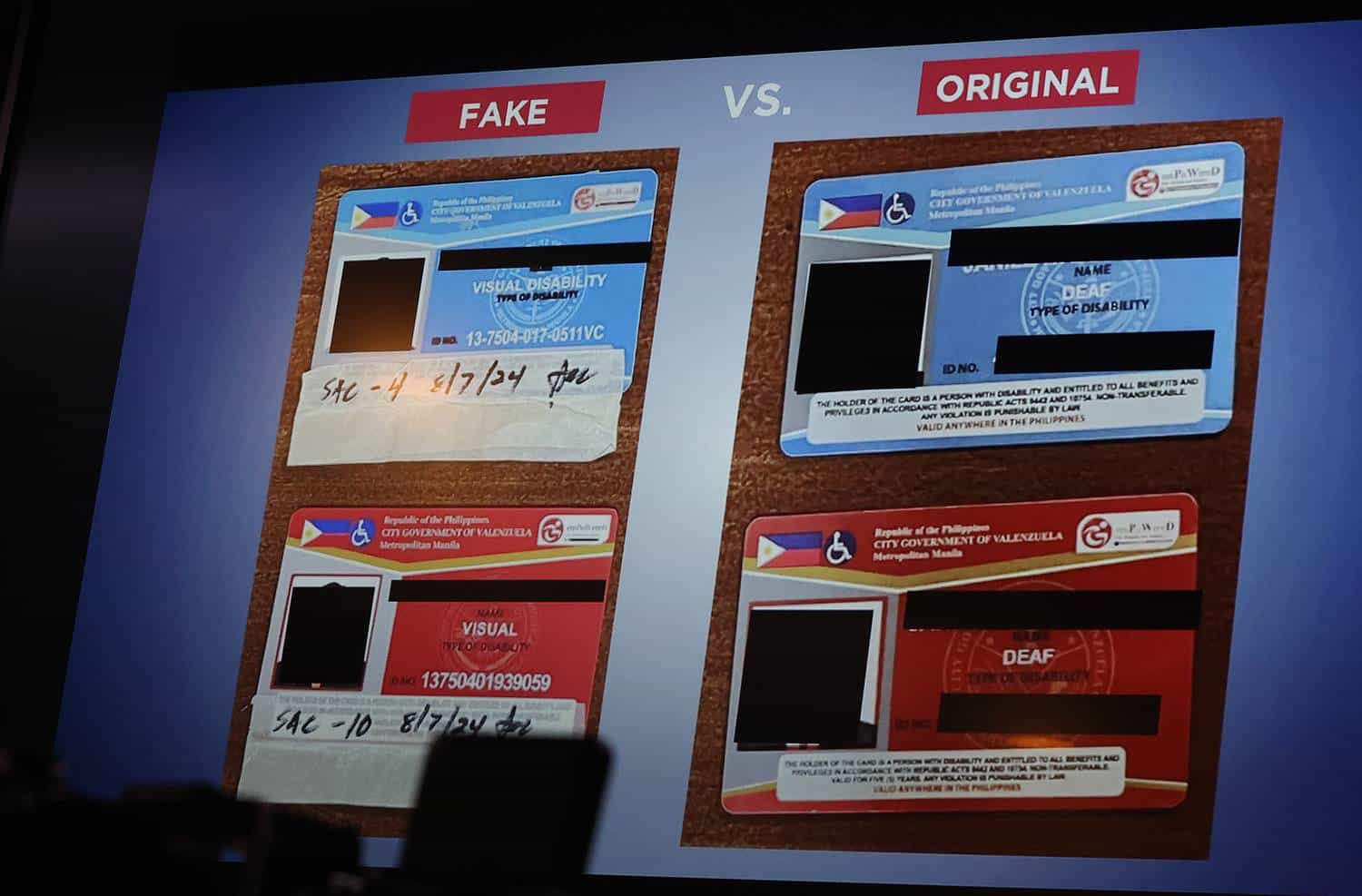
This photo shows the slide comparing legitimate persons with disabilities (PWD) IDs and fake PWD IDs during the hearing of the Senate committee on ways and means at the Senate of the Philippines, Pasay City, on Thursday, December 5, 2024. INQUIRER / NIÑO JESUS ORBETA
MANILA, Philippines — The National Council on Disability Affairs (NCDA) will come up with a unified identification card (ID) and database system for persons with disabilities (PWDs) to stop the proliferation of fake PWD IDs.
In a news briefing on Thursday, NCDA Executive Director Glenda Relova said the new physical ID, which would be embedded with biometric data, QR code, and the owner’s signature as part of its “high-security” features, was already in the works.
An electronic ID that could also be accessed online via a QR code “for quick verification,” she added.
“Details should be limited to prevent any violations of the data privacy law,” Relova noted.
Data storage
Data on both the physical and digital IDs would be stored in real-time in a cloud-based Philippine Registry for PWDs, whose management would be transferred to the NCDA from the Department of Health (DOH).
The NCDA, an attached agency of the Department of Social Welfare and Development, has a governing board with 13 government agencies as its members and its parent agency as chair.
Other government entities include the DOH, as well as the Departments of Education, Foreign Affairs, Justice, Labor and Employment, Information and Communications Technology, and Trade and Industry.
“We had a roundtable discussion … and we are now just finalizing the terms of reference to iron out the different phases of distribution of the ID,” Relova said.
The national government, through the NCDA and member agencies, would be tasked with running a “centralized” production hub for the ID cards.
The application and approval for the PWD ID applications, however, would remain with local government units.
But to successfully implement the new system, the administrative orders would first have to be amended, while PWD records must be purged.
Pilot run
Pilot testing is set to be conducted in the first half of the year, from January to June, to “collect feedback and refine the system,” before a nationwide rollout is implemented by July.
So far, the NCDA has reached out to the city governments of San Juan and Mandaluyong for the pilot project.
“It would be challenging to simultaneously implement the production [of IDs], so we will launch it first in areas where there is a high number of establishments,” Relova said.
Under the current system, the verification for physical PWD ID cards remains “challenging” for business owners and employees due to the lack of uniformity and an outdated PWD registry, she explained.
Citing the latest data available from the DOH, Relova noted that over 906,000 individuals were currently registered as PWDs.

